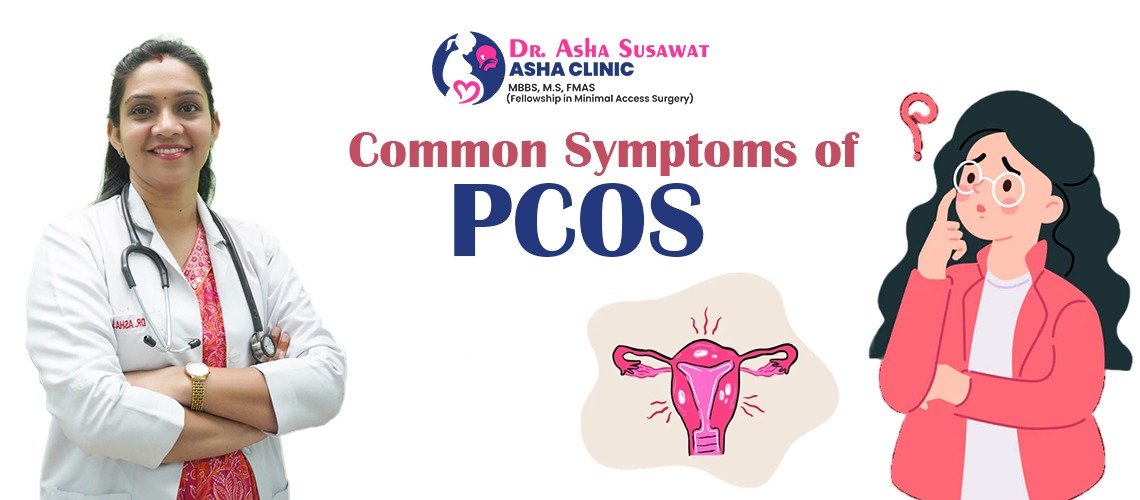Common Symptoms of PCOS
Common Symptoms of PCOS affect women’s reproductive health and overall well-being. One common indication is irregular menstrual cycles, characterized by missed periods, irregularity, or unusually light periods. This irregularity often stems from hormonal imbalances that affect ovulation.
Another hallmark of PCOS is the presence of enlarged ovaries with numerous small cysts. These cysts contribute to hormonal disruptions and can impair fertility. Excessive body hair, known as hirsutism, is another prevalent symptom, manifesting as unwanted hair growth on areas such as the chest, stomach, and back. This condition is caused by elevated levels of androgens, or male hormones.
Weight gain, especially around the abdomen, is a frequent concern for individuals with Polycystic Ovary Syndrome (PCOS). This type of abdominal obesity is often associated with insulin resistance, a metabolic condition commonly found in those with PCOS. Insulin resistance makes it difficult for the body to use insulin effectively, leading to elevated blood sugar levels. Over time, this can result in further health complications such as type 2 diabetes and cardiovascular disease. The accumulation of fat in the abdominal region exacerbates these risks, making weight management a critical aspect of PCOS treatment and overall health maintenance.
Skin-related issues are also prevalent in PCOS. Acne and oily skin are frequent complaints due to hormonal fluctuations, while male-pattern baldness or thinning hair can affect scalp health. Additionally, skin manifestations such as skin tags (small pieces of excess skin) around the neck or armpits, and dark or thick patches of skin (acanthosis nigricans) in areas like the neck, armpits, and under the breasts, are also observed.
Infertility is a significant concern for many women with PCOS, primarily due to irregular ovulation or lack thereof. These diverse symptoms underscore the complexity of PCOS and highlight the need for comprehensive management approaches tailored to individual needs. Early diagnosis and targeted treatments can help mitigate symptoms, improve reproductive health, and enhance overall quality of life for women affected by this condition.

